Appalachian women have always been strong figures. These women bring that mountain spirit to everything from technology and manufacturing to activism and law, in every part of the state. West Virginia Focus celebrates them—and expresses Great Expectations for their up-and-coming sisters.

Living Local
Alisa Bailey thinks Charleston—not to mention the state as a whole—is poised for a renaissance, and she says it’s going to revolve around tourism. “We’re going to rock and roll,” she says.
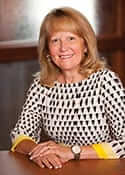
In 2003 Bailey moved to Virginia to work in tourism, but she spent less than a decade away before she felt West Virginia calling her home. Her urge to come back to Charleston was one part personal—“I was really, really homesick,” she says—and one part professional. She saw big things on the horizon and wanted to be part of them. “Watching my hometown be revitalized is really exciting for me,” she says.
Bailey’s most excited about major renovations planned for Charleston’s Civic Center and the renewed interest in enhancing the city’s downtown—both things that make the capital city more attractive to tourists as well as people, like herself, who call Charleston home. “Tourism is a great part of the economy because we can bring people in, give them a great time, and taxpayers don’t have to pay for their education or their health care or any other services we provide citizens,” Bailey says. “It’s also very important for quality of life—the things we invest in for tourism make our destination more attractive to other forms of business. They also make it more livable for everyone.”
 Advancing Arts
Advancing Arts
In 2003 Sally Barton became the first executive director of the Tamarack Artisan Foundation, the only organization in the state that serves artisan entrepreneurs. Since then she has directed the efforts to raise more than $4 million benefitting West Virginia’s artists and is responsible for setting the strategic initiatives contributing to an annual economic impact of $18.6 million to the people of West Virginia. Barton is a first generation American and the first in her family to attend college.
 Born to Teach
Born to Teach
Joyce McConnell may never have made it to the position she’s in today were it not for the advice of her mentor given just days after graduating law school. “I feel I owe my entire career to her. She had been my supervisor at law school and she suggested I apply for a teaching fellowship at Georgetown in Washington, D.C. She said to me, ‘You’re a born teacher,’” McConnell says. “I don’t think I would have had enough confidence in myself at the time to think I would be competitive as a law professor.” Today McConnell isn’t just a tenured law professor. She’s moved up in the world of academia from a nationally recognized scholar and professor to dean of the West Virginia University Law School to, very recently, provost of the university.
At WVU she oversees high-level academic program development spanning all disciplines, not just law. “I really want to see WVU become one integrated university,” she says. “I want the university to work as one whole organic being, particularly in terms of working on multidisciplinary studies to solve real world problems. It makes for a very exciting academic experience for students.” The school is working on several such programs now in the fields of energy and sustainable development, health care solutions, and water issues. These programs cut across all kinds of academic disciplines, from biology to law to engineering.
McConnell stepped into the position in July 2014, but since taking over she’s already overseen an overhaul of the WVU Honors program and Extension Service. Her guiding philosophy as an educator? “The most important thing for students to learn is the ability to solve problems and articulate the solutions for those problems. No matter what discipline someone is in, those are key skills.”
 Tech-Savvy
Tech-Savvy
Anne Barth works to encourage innovation, economic diversity, and a better economy. Barth is the executive director of TechConnect West Virginia, a coalition that encourages technology-based economic development. “What we really want to do is turn innovation into enterprise,” she says. The idea is to connect innovators with the resources they need to turn their ideas into thriving companies that will put West Virginians in sustainable, good-paying jobs. “If we can offer solutions to problems that society faces and build industries around those technologies, then we have a much better chance of keeping those jobs in West Virginia,” Barth says. “We want to reverse the brain drain and create brain gain.”
 On a Roll
On a Roll
In the mountains of West Virginia, racing through mud and over rocks, Susan Haywood started her career. She first mounted a bike in 1991, just out of her teens, but her dedication and skill proved to be competitive nationally and internationally. “When you’re a professional athlete money is often the motivating factor, but with mountain cycling there’s not a lot of money—I was motivated by better results and winning races,” she says. Haywood raced mountain bikes professionally for more than 10 years, earning four national championships and a world championship in solo racing. Today Haywood coaches budding riders across skill sets and levels and is an integral member of cycling culture around the Potomac Highlands area. Her brainchild, the annual Canaan Mountain Bike Festival and fundraiser, draws cycling enthusiasts from around the country for a weekend of group rides and trail development work. “The first year we had 15 people. This last year we had 125. We’re looking for sustainable growth. Something that can grow every year and contribute back to the community.”
 A Grafteful Immigrant
A Grafteful Immigrant
“To steal a phrase, I consider myself a grateful immigrant to the state of West Virginia,” Lea Ridenhour says. Since moving to Wheeling in 1996 the senior vice president at WesBanco has been actively involved in numerous community organizations.
With the Wheeling Symphony Orchestra Auxiliary she assists with fundraisers, receptions, and as a concert greeter in addition to her work on the symphony board as immediate past president. She’s now an alumni member of the volunteer organization Junior League of Wheeling, having formerly served as president. Ridenhour also just finished a six-year term on the state board of the national Girl Scouts organization. “We all have an obligation to give back to our communities in whatever capacity we’re able,” Ridenhour says. “I have two children and I think—I hope—I’m setting a good example for them about leadership and being helpful to other people. Nothing is more satisfying for me than someone saying, ‘Thank you for making this so easy for me.’”
 Hot Dog!
Hot Dog!
In 1991 Angie Cowger and her husband bought a piece of property in Webster Springs—a car wash and three apartments. Then they took a look at that property and decided they’d rather revive the town’s old dairy bar—affectionately called “the custard stand”—than rent out that downstairs apartment. They started their own old-fashioned dairy bar on that spot and named it The Custard Stand. By 2003 enough customers had asked to buy their signature hot dog chili that the Cowgers opened a second business, Custard Stand Food Products, where they make and sell the stuff. The chili is now sold in 13 states, and there are six locations, some of them franchises. “We continue to try to develop business and employ more people in our community because we don’t want to see our community dry up and disappear like so many have,” Cowger says. They recently bought a building in downtown Webster Springs so they can move The Custard Stand restaurant downtown from its current location a mile outside of town. “We don’t want to see empty buildings, so we’re going to try to put some business storefronts in there ourselves,” Cowger says.
 Helping Hand
Helping Hand
Growing up, Kristina Oliver was artsy. “But I was also the lemonade stand kid,” she says, a natural entrepreneur. So even when she started her first business, an advertising sign company, at the age of 23, she continued to show her own art. “Then when I reached a certain age I realized entrepreneurship is the ultimate in creativity,” she says. “Innovative thought and creative thought are the key to growing businesses.” That’s what Oliver helps West Virginians do now, as the state director of the Small Business Development Center. The SBDC helps connect entrepreneurs with the resources their businesses need—a project Oliver feels strongly about because of her background in small business. “If I’d had someone to help me I would have avoided a lot of the pitfalls I fell into because I didn’t have the confidence to reach out for help,” she says. “I don’t want others to have some of the heartburn that I had.”
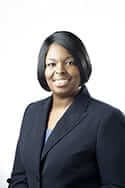
Defending the Public
When a chemical that spilled in state Delegate Meshea Poore’s Charleston district contaminated drinking water for 300,000 in January 2014, she took it personally on behalf of her constituents—pressing for clean water distribution, attending town hall meetings, participating vigorously in the drafting of legislation to address the underlying problem. A Kanawha City native, Poore worked as a public defender in Kanawha County after earning her law degree from Southern University Law Center in Baton Rouge, Louisiana. Then-Governor Joe Manchin appointed her in 2009 to fill a vacant seat in the House of Delegates, and she was re-elected in 2010 and 2012. Poore is a prolific lawmaker, seeing 13 of her own bills passed in 2013 and sponsoring 117 bills in 2014. She champions low-income, family, and other social causes.
 The Problem Solver
The Problem Solver
As a managing partner at West Virginia’s oldest and largest public relations firm, Charles Ryan Associates, Susan Lavenski helps West Virginia businesses put their best faces forward. Now celebrating its 40th year in business, Charles Ryan has worked in every corner of West Virginia—with businesses large and small, from every industry in the state. And in her 16 years at the company, Lavenski has been a part of much of that work. “I have personally worked in every county,” she says.
Lavenski specializes in issues management, which means she spends a lot of her time solving problems—and she likes it that way. “Every day presents a new and different challenge,” she says. Her formula for success is one part job satisfaction, one part drive to succeed—a combination that makes for a fiercely hard worker and iPhone addict who is still excited about her job. “I would encourage young women to find their passion. Find a career path that excites you and makes you want to get up in the morning,” she says. “Work hard, work smart, make yourself invaluable, and find a company that appreciates that.”
 All Rise
All Rise
Federal District Judge Irene Keeley often jokes that she began her law career in an effort to win dinner table arguments with her father, a Washington, D.C., litigator. The Brooklyn native, D.C.-raised West Virginia judge had a roundabout journey to the bench, taking 10 years off from her first year of law school to raise a family and pursue a master’s degree, but today her calling has more to do with civic duty than mealtime debates. “It’s pretty hard for a judge not to consider their proudest moment to be raising their right hand and taking that oath of office. It’s the highest form of public service,” she says. “It’s also one of the scariest moments because you don’t know if you can do the job. You realize the awesomeness of the undertaking.”
Keeley has assumed the role with zeal. She’s been appointed to multiple committees looking at federal judicial codes and reviewing sentencing procedures and served as chief judge from 2001 to 2008. In her 22 years of service, she says she’s appreciated every moment. “My criminal cases are the ones I often view as most important. They affect a person’s liberty so directly,” she says.
 World-Class Activist
World-Class Activist
Each year just one grassroots activist on each continent receives the Goldman Environmental Prize. In 2009 the “green Nobel” for North America went to Maria Gunnoe. Gunnoe’s Boone County home lay below one of the more than 500 Appalachian mountains that have fallen to mountaintop removal mining, their tops blasted and bulldozed into the valleys to expose the coal beneath. As a result, her property flooded repeatedly in the early 2000s. When Gunnoe, daughter of a coal miner, spoke out to protect her home and community, she faced harassment: her tires slashed, her dog shot, her face on “Wanted” posters. “She’s one of the bravest activists we’ve seen, putting her life on the line,” a Goldman spokesperson told the Associated Press. In 2012 Gunnoe received the Wallenberg Medal for humanitarian leadership, a medal previously awarded the Dalai Lama. Serving on the board of the Ohio Valley Environmental Coalition, Gunnoe now works to protect the Monongahela National Forest as natural gas extraction moves in.
 A WV Storyteller
A WV Storyteller
Elaine Sheldon has been busy. First she spent months in rural McDowell County filming her interactive documentary, Hollow, which looks at life in southern West Virginia. Then she did the rounds with the film and gathered the accolades. Hollow has been screened more than 50 times, including at the South by Southwest Festival and the U.S. Capitol, and it won a 2013 Peabody Award and a World Press Photo award. And the accolades keep coming. This summer Hollow was nominated for a 2014 Emmy in the New Approaches for Documentary category.
Sheldon left the state after college, but returned to film Hollow to answer the urge she’d always felt tugging at her, telling her to tell West Virginia’s story. “Sometimes I almost wish I was from a state that I didn’t care as much about—other people can leave their home state and never think about it again. But we West Virginians have this affliction, we have to be part of something back home,” she says. “I really care about it.”
 Teaching WV
Teaching WV
As the president of the West Virginia Board of Education, Gayle Manchin presides over the body that governs all of West Virginia’s public schools—a lively and complex kingdom that includes 55 county school districts and more than 280,000 students. “I have a firm belief that education is the key to every good thing that will ever happen in West Virginia,” Manchin says. “The better the quality of education for every child the better the chance of success for them and their families.” Before she was appointed to the board that oversees the school system she spent time working within it—first as an English and language arts teacher, then as a reading specialist. Later she oversaw Gear Up, the big federal college-readiness program for low-income kids in the state. “All these experiences taught me that we have some real issues and challenges in education, and I don’t think they’re just in West Virginia; I think these issues are national issues,” Manchin says. “It got me really interested in looking at what we could do differently to make things better for our kids.”
 Fair Lady
Fair Lady
Kelly Kimble, chair of the LGBT civil rights advocacy organization Fairness West Virginia, Morgantown resident, and lawyer at Spilman Thomas & Battle, PLLC, says she’s always had an innate sense of justice. “Since I was a child, fairness has always been at the forefront for me,” she says. Kimble came on as chair of Fairness in 2013 and is using her extensive legal background—as a seasoned litigator and corporate defense lawyer—to help further Fairness’ goals of getting non-discrimination legislation passed. “I think I’ve been pretty out all my life. I’ve never been closeted, and being a professional in a town like Morgantown, where the fight for LGBT rights is perceived to have a good bit of support, the organization wanted to have a board member who would be effective in growing a base,” she says. “I also have two teenage boys. I want more than anything for my children and everyone’s children to live in a world of acceptance, equality, and fundamental fairness. I want to be a part of that legacy.”
 The Verdict is In
The Verdict is In
Robin Davis is the chief justice of West Virginia’s highest court, one of two female justices serving on that court. She’s taken part in more than 2,500 opinions, and not a single one has gone on to the U.S. Supreme Court and been reversed. She was also part of the team that revised West Virginia’s rules for appellate court procedure, making for a more transparent court system and saving taxpayers millions of dollars.
When Davis started practicing law in the 1980s there were very few female litigators, and she thrived in the courtroom—so she started paying attention to the importance of diversity in the legal system early on. “It’s not that women are always right, but we look at things and see things differently than men,” she says. “My male colleagues may bring up one point and we women see it a totally different way for a different reason.” Her advice to young women hoping to succeed? Don’t hold back. “Sometimes women have to work a little harder to prove themselves but that’s OK,” she says. “Just roll up your sleeves and do it.”
 Stepping Up
Stepping Up
Susan Brewer lived and breathed the law from an early age. Growing up in Arlington, Virginia, she spent summers working in her father’s firm filling in for reception and, as she got older, accounting. In undergrad, the trial lawyers at the firm began assigning her legal research, case investigations, and depositions. “They were teaching me things that most law students learn when I was just in high school and college,” Brewer says. “By the time I went to law school I was very comfortable in the courtroom. It didn’t intimidate me at all.” Today, as managing partner of law firm Steptoe & Johnson, the award-winning Brewer is recognized as the first woman to lead a major West Virginia law firm.
Brewer began at Steptoe just two weeks out of law school, when she and her husband moved to Morgantown to start a family. There, in addition to raising a family of four, Brewer dedicated a long and vigorous litigation career to representing community hospitals throughout the state. As managing partner, Brewer has moved away from litigation and into a leadership role, taking on the mentoring of young lawyers both male and female. “I’ve spoken a lot to younger attorneys about work-life balance and trying to have a fulfilling career while also having a personal life,” she says. “Sometimes women in particular think they have to do everything themselves. My method is always to accept help.”
In her personal life Brewer has devoted herself to the Morgantown community. She serves as chair of the Pittsburgh Ballet’s regional advisory committee, is instrumental in bringing programs like Swan Lake to Morgantown, and is on the board of the West Virginia University Foundation, the fundraising arm of the university. Brewer and her husband have also been diligent in supporting programs like high school lacrosse and Boy Scouts of America.
 Peace of Mind
Peace of Mind
April Woody stumbled into her first yoga class around 13 years ago, when she was trying to lose the weight she gained while pregnant with her first son. “It resonated with me deeply,” she says. “It changed my life.” In 2008, after noticing the lack of options for serious yoga practitioners in Charleston, she opened her own yoga studio there, The Folded Leaf. Since then she’s brought classes to hundreds of eager yogis and started West Virginia’s first accredited program for training new yoga teachers. Around 25 people have graduated from that program already, and Woody hopes those teachers will spread across the state and the globe to help yoga change others’ lives like it changed hers. The practice of yoga has been especially dear to her lately, as she’s been dealing with a cancer diagnosis and treatment. “The definition of yoga is the cessation of the flexation of the mind—it’s peace of mind,” she says. “It’s helped me immensely, and without yoga I can’t imagine where I’d be.”
 Energetic Ideas
Energetic Ideas
Amanda Pasdon got into Legislature because she was frustrated with it. Now she’s representing Monongalia County in the House of Delegates and is part of an influx of young politicos in Charleston—which she says signals that the state is poised to make a leap in the right direction. “Regardless of party affiliation, we all want to see West Virginia move forward,” she says. “We have a lot of energy, a lot of enthusiasm, and a lot of fresh ideas.”
 Arts, Advocacy, and Altruism
Arts, Advocacy, and Altruism
When Susan Landis was a kid, the daughter of an Army doctor who moved the family often, her father would give a familiar lecture each time they came to a new town. “He’d say we were going to be guests in the community we moved to, and as guests of the community it was important that we give back,” she says. “That was just what you did.” Landis has followed that philosophy closely throughout her life, which may be why she’s such an outstanding community organizer and advocate today. She’s the executive director of the Beckley Area Foundation—she started as a volunteer on the Board of Directors and moved into a staff position when it became vacant—and a loyal advocate for the arts in West Virginia. Her long list of civic contributions includes more than a decade on the West Virginia Commission for the Arts and time dedicated to a slew of other organizations. “I really think it’s important that everyone find a way to give something back,” she says. “I sound like a Pollyanna to say it, but I think it’s really our duty to volunteer time, talent, and treasury to help our communities.”
 Saving Cats and Dogs
Saving Cats and Dogs
Chelsea Staley has helped to save the lives of hundreds of animals since she took over as executive director of the Kanawha-Charleston Humane Association in October 2013 and changed the animal shelter’s approach toward managing strays. “We do everything not to euthanize now unless that animal needs to be put out of its misery,” she says. In 2012 the shelter saved 35 percent of all the animals it took in, and euthanized the rest. In 2014 the organization is on track to save 92 percent.
 Break a Leg
Break a Leg
Cathey Sawyer came to the Greenbrier Valley Theatre more than 20 years ago when she answered an ad for an artistic director who would grow a summer-only company into a fully professional theater. In the two decades since, Sawyer has done just that, transforming the GVT into West Virginia’s only professional live theater company and an anchor of the arts community in Greenbrier County and across the state. “We need theater to tell our stories, to chronicle our histories, to teach us empathy, to enhance and encourage our creativity, and to feed our souls,” she says. “I truly believe theater is an investment in the health of our community.” Sawyer speaks pragmatically about the necessity of theater—pointing out that it’s an important part of the tourism industry that is so vital to West Virginia’s economic health. But she’s just as motivated by its importance to West Virginia’s people on an even more profound level. “For any community to thrive, the creative spirit must be nurtured and preserved,” she says. “That spirit connects us to each other in ways that make us stronger and better human beings.”
 Miss Politics
Miss Politics
Tiffany Lawrence may be young, but she already has an impressive political career behind her, and surely ahead of her, too. The 32-year-old from Jefferson County has served in the House of Delegates since 2008 and is the assistant House majority whip—she’s currently running for her fourth term in office. Oh, and she’s a former Miss West Virginia, too.
 Water Warrior
Water Warrior
During one of her many visits to West Virginia, Pittsburgh native Cindy Rank learned in 1971 that a friend’s property in Upshur County was for sale. She and her husband bought the 45 remote acres and adopted a physically demanding lifestyle, building a cabin and enjoying life among the hills and mountain streams. But when a strip mine was proposed nearby, Rank’s love for her new home led her to learn about the federal and state laws and regulations that govern mining, about the responsibilities of government oversight agencies, and about the tools that enable citizens to hold agencies and corporations responsible. Volunteering with the West Virginia Highlands Conservancy for almost 40 years, Rank has been a quiet force for upholding laws that protect property and the environment. In August 2014 the Ohio Valley Environmental Coalition (OVEC) awarded Rank its Laura Forman Passion for Justice Award. “It would be hard to think of any other non-lawyer who knows as much about mining-related water laws and regulatory history,” says OVEC founder Dianne Bady.
 On Kaull
On Kaull
There’s a good chance at least some of the things you know about West Virginia, you know because April Kaull told you. She’s been a TV news reporter for nearly 20 years—she’s often the veteran reporter on the story, and she’s a familiar face to most West Virginians, their trusted arbiter of the news of the day. Kaull hopes the work she does can, in some way, inspire West Virginians to better themselves and their communities. “I think the communities in West Virginia have a great deal to learn from one another with the challenges and the successes they’ve had, and one of the best ways to learn about those stories is through the media,” she says. “If I’m able to share a story from Weirton of a problem they are having and a possible solution they’re working on, and it’s able to help people in Beaver in Raleigh County—that’s a good day for me.”
 Preserving History
Preserving History
Driving through Wheeling’s historic districts you’ll pass well preserved remnants of 19th century life in the formerly bustling industrial town. Quaint row homes and towering Victorian spires harken back to an era of wealth. But were it not for the work of several women in the mid-20th century, much of Wheeling’s living history would be lost. Now 78 years old, Snookie Nutting is an honored matriarch of historic preservation throughout West Virginia, though her financial interests and physical preservation work have been Wheeling focused.
It was a tour of an East Wheeling Victorian house in the 1960s that sparked Nutting’s first effort to restore grandeur to the city’s historic skyline. “It had been beautiful, but it was run-down quite a bit,” she says. “Wheeling at that time looked really bad. They weren’t keeping up the buildings like they should have, but what the city has is absolutely incredible. We have so many Victorian buildings.”
At the time, the old Victorian home housed an odd hospital of sorts—men with nowhere else to go were kept bedridden. “I decided I would like very much to buy that building,” she says. “I had to fix the walls, the ceiling, there were cracks everywhere. But I liked doing it; it was great fun.” The first house sparked a career that landed Nutting on national and state historic preservation boards, including roles as first president of the Preservation Alliance of West Virginia, founder of the late Victorian Wheeling Landmarks Foundation, and West Virginia advisor to the National Trust for Historic Preservation.
 Good Woman
Good Woman
Amy Goodwin really loves West Virginia. After all, it’s where she grew up, worked much of her life, met her husband, and is raising her family. “If I look at all the photos that are in my home, they’re of me and my family members out in the state doing things we love to do,” she says. And Goodwin, the commissioner of the West Virginia Division of Tourism, is convinced that if she can help give visitors great experiences in West Virginia like the ones she’s having in those photos, they’ll leave feeling as excited about her home state as she does. “I am absolutely convinced we can create experiences that makes visitors feel the power that a destination can have on you,” she says. “I want everyone to feel about the state the way I do long after they leave, because our lives are filled with great things, but the experiences we get to have are really imprinted on us.”
Goodwin grew up in Ripley—the daughter of a father who opened a golf store after dreaming for years of owning his own business, and a mother who went back to school as an adult so she could transition out of a career in education to become a dental hygienist. “It’s empowering watching your parents take risks,” she says. She started her career as a TV news reporter, but then transitioned into a staff position in local government, which led to a staff position with then-Governor Bob Wise, which spiraled into time on Capitol Hill. Eventually she became the spokesperson for Governor Earl Ray Tomblin and then, in the summer of 2014, was appointed to the state’s top tourism job. By this point she can hardly imagine working in a field that isn’t related to public service. “I really jam on what I do,” Goodwin says. “It is such a high for me to be able to accomplish something for someone else.”
 Better with Curry
Better with Curry
Working mother and Hurricane resident Mandy Curry created Healthy Kids Inc., an online healthy meal planner for parents, with her husband, Kirk. In 2014 Mandy and Kirk were selected to compete in a hackathon sponsored by the Partnership for a Healthier America to create a solution that improves childhood obesity, and their solution won the Innovation Challenge. In 2015 they’ll take their idea—Start A Garden, designed to help teachers start classroom gardens—to Washington, D.C.
 Food for Thought
Food for Thought
Nancy McIntyre is the senior associate dean at WVU’s College of Business and Economics. She’s also part owner of two Morgantown restaurants: Taziki’s Mediterranean Café and Martin’s Bar-B-Que Joint. But those aren’t just any business ventures—McIntyre is one of the people behind an effort to give students hands-on experience in the hospitality industry and feed graduates into the job market. Taziki’s was gifted to the college in 2010 by two alumni—it’s staffed with students from the college’s hospitality management program and donates all net proceeds to the business school. Martin’s opened in Morgantown in 2013 with the same idea in mind. McIntyre is also an active researcher. Her research interests include curiosity, perfectionism, and emotional intelligence. She wants to understand, among other things, what motivates people to seek creative, innovative solutions to problems.
 Action Oriented
Action Oriented
Founder, president, and CEO of Action Facilities Management, Inc. (AFM) in Morgantown, Diane Lewis is proud to say she started her company in her basement in 2001. “I was always taught to be honest, work hard, do your best, and your work will be noticed,” she says. Since then AFM, a government and commercial contract firm, has grown to more than 300 employees. The U.S. Department of Defense, Department of Energy, Department of Homeland Security, and Centers for Disease Control and Prevention have all been her clients. Among her numerous awards and accolades, she was the 2010 Minority Small Business Champion for the State of West Virginia by the U.S. Small Business Administration and was named the West Virginia 2013 Small Business Person of the Year by the same organization. Long-term, she wants to find time to help make others’ dreams come true. “I want to be able mentor other young entrepreneurs to be successful and possibly provide opportunities for their companies to grow as well. I want to give back to the community that believed in me enough to help me.”
 A Dedicated Delegate
A Dedicated Delegate
Barbara Fleischauer is a well-known name in North Central West Virginia where she’s spent more than a decade as a state delegate fighting for both fairness issues and her career.
First elected in 1994, the state’s longest serving female delegate got her advocacy start at an early age. “When I was in high school girls were not allowed to wear pants in school,” she says. “When I ran for student council president I negotiated with the school superintendent so we could.” That was in Pennsylvania where she grew up. When Fleischauer moved to her family farm in West Virginia, she began her work as a rights advocate on a broader scale, but it hasn’t been easy.
“Employment issues and fairness issues have been things I’ve been interested in for a very long time. It’s important for women and minorities to have a fair shot,” she says. She speaks from experience. In nearly 20 years serving in the Legislature, Fleischauer has only just been named chair of a committee, and a minor one at that. “I’ve seen many men with less experience move ahead,” she says. “Your ability to influence things is related to whether you’re in a leadership position. It’s been very hard to raise the glass ceiling.”
 Assuming Positive Intent
Assuming Positive Intent
Growing up in Pocahontas County, Sarah Riley was frustrated by the limitations she felt in school and in the community. After leaving the state for a college career at Harvard, Riley was inspired to come home to provide West Virginia’s girls with the nurturing atmosphere she never had. Now 39 years old, Riley is the director of High Rocks, an award-winning leadership organization promoting the education and encouragement of young women in Pocahontas, Nicholas, and Greenbrier counties. There she is responsible for leading a team of staff and volunteers through a number of initiatives—summer camps to tutoring—for girls as young as 12 and as old as 25. “I’m a mentor, coach, idea-generator, and problem-solver,” she says.
Her guiding philosophy: “Assume positive intent. Assume the people around you want to be successful, kind, hard-working, productive, healthy, and generous—and you should do what you can to help them get there.”
 King Conquers All
King Conquers All
Before she started Strategic Resolution Experts, Inc. (SRE), Jeannette King, a Navy veteran, was already a force to be reckoned with. “In the military I was in charge of human resources, training, accounting, and IT,” she says. “With my background and military training, I was able to translate that into the core capabilities of my company.” King has been able to build her business from the product of a $10,000 tax return to a $3 million organization in less than 10 years. SRE, a Martinsburg-based company, does a little bit of everything for both government and commercial companies in the areas of IT governance, human capital and strategic planning, project and program management, and training. SRE also supports charities for the country’s military, veterans, and their children. King was recently selected as the Small Business Association’s West Virginia 2014 Veteran Small Business Champion of the Year and was chosen as a finalist Woman Vetrepreneur of the Year by the National Veteran-Owned Business Association, in partnership with JPMorgan Chase & Co.
 Dream a Little Dream
Dream a Little Dream
Entertainer, philanthropist, author, mother—if Dreama Denver is one thing, it’s inspiring. Wife of the late Bob Denver, the much-loved actor who played Gilligan on Gilligan’s Island, Denver now runs Little Buddy Radio (93.1 FM) in Princeton and takes care of her autistic son, Colin. She also changes lives. “I don’t know what to call myself. On paper I look really good, and I’ll bet Bob is up in heaven grinning his little butt off,” she says. “But if anyone told me 10 years ago that I would be doing what I’m doing now, I wouldn’t have believed it. I wouldn’t have imagined I’d get involved in so much.” She now runs The Denver Foundation, a nonprofit dedicated to helping individuals and families with special needs that she and Bob started. And in 2012, together with her assistant, Pam Coulbourne, she began West Virginia’s first honor flight program—Always Free Honor Flights—a chapter of the larger nonprofit that transports veterans to Washington, D.C., to visit their memorials. If you ask her what inspired her to get involved in so much, she’ll say it’s obvious—her son and her husband. “It didn’t occur to me that Colin and our life with Colin was setting me on a particular path until years after Bob died. When it all came together, I was filled with so much gratitude—for my son, just the way he is, gratitude for the 30 years I spent with Bob, gratitude for a husband who believed I could do anything. After he died I had to find a way to believe it for myself. That was the work, deciding that to honor Bob’s memory, I had to pull myself up by the bootstraps,” she says. “I say this to everyone who’s suffered a loss. We all have different ways, but whatever you can do to honor the love you had—even if it’s not public—think about how you can be a positive force in someone else’s life.”
 The Long Game
The Long Game
Carolyn Long is the quintessential educator. She’s been a teacher and administrator in West Virginia public schools and in higher education for much of her career, she was named the first female board chairperson of the West Virginia University Board of Governors, and she was the first female superintendent for Braxton County Schools. Now she’s helping revitalize West Virginia University Institute of Technology as campus president. “I am motivated by the young men and women who will take our country to greater heights,” she says. “We have to make sure we see the potential in every single one of our youth and help them move forward.” Together with the West Virginia Higher Education Policy Commission, WVU, and the state legislature, the campus saw a 10 percent enrollment increase in fall 2013. “No matter what you do in your career, you need to find how your work makes a difference. Everyone can make a difference and we all need to ensure that we give others every chance possible to move forward and grow.”
 Taylor Made
Taylor Made
“Success comes from looking forward,” says Lydotta M. Taylor, former math teacher turned nationally recognized leader in education reform. “My professional philosophy is founded on a strong work ethic with a focus on not only creating but also maximizing opportunities to make good things happen.” Taylor’s raison d’être is to inspire—a lofty goal, but one she’s actively making into reality through entrepreneurial endeavors like the EdVenture Group in Morgantown, an education consulting firm that provides customized professional development programs, and L-evation, LLC, which works to provide businesses, individuals, and government entities with strategies and solutions for improving both personally and professionally. Through highly successful training programs and competitive federal, state, and private funding sources, her efforts have impacted more than 500,000 educators, businesses, and community members. This professional development force of nature has also been vice president for workforce and education at the West Virginia High Technology Consortium (WVHTC) Foundation and the director of educational programs at the WVHTC Foundation and the Monongalia County Board of Education. “I started my career as a math teacher, and in many ways, I’m still teaching today.”
 Pennies to Platinum
Pennies to Platinum
A leading businesswoman in West Virginia and around the world, Judy Sheppard grew Professional Services of America, Inc., (PSA) from a startup with $500 to a multimillion-dollar human resources provider to many of the country’s most prominent corporations. Sheppard is president and CEO of the company, which offers services ranging from staffing and employee training to consulting and marketing services. The organization has recently celebrated 25 years of business with a client list that includes DuPont, GE, the U.S. Department of Energy, and the U.S. Department of Treasury. While Sheppard has opened PSA offices around the country, she continues to maintain a headquarters in Parkersburg where she is also active in multiple professional and community organizations. Her awards and accomplishments alone could take up a full page: multiple who’s who lists, entrepreneur of the year for several years, small business person of the year, and one of the most powerful minority women in business, to name a few.
 Living the Dream
Living the Dream
Ashley Jenkins joined Rainelle’s volunteer department at 17, inspired by her father, who was an active firefighter for years. As a little girl Jenkins says she would jump at the chance to go to the firehouse with him. “As I grew up it became less about riding big red trucks and hanging out at the firehouse and became more about wanting to help others and serve my community.” Jenkins’ desire to fight fire never waned. She’s been with the department for 12 years and was elected to chief in January 2014—one of the first female fire chiefs in the state. “I want Rainelle Fire Department to be a family of brothers and sisters who the citizens of Rainelle can count on in their time of need, no matter the situation,” she says.
 Raising the Stakes
Raising the Stakes
Judy McCauley rose through the ranks of business development, starting in banking and moving to real estate and then to the U.S. Department of Energy. It was there, working with businesses looking to contract with the DOE, that she found her calling. “I liked negotiating contracts for the government, but what I really enjoyed was working with the companies,” she says. “I love seeing them succeed.”
Her position with the DOE launched a job with the U.S. Small Business Administration, where she’s served as West Virginia’s district director since 2004. Aside from her work at the SBA helping small businesses find their feet, McCauley has a personal drive for economic development in the state. She’s spent much of her time with boards and organizations, such as the West Virginia High Technology Consortium Foundation and statewide collegiate business plan competitions, promoting the development of all West Virginia businesses—and winning multiple awards for her successes. “I only have one daughter,” she says. “My determination was that if my daughter chose, she could stay in West Virginia and have a high-paying job.”
 Ladies First
Ladies First
As president of Southern West Virginia Community and Technical College, Joanne Tomblin gets to watch education change lives. “I get to see students who didn’t believe they could be successful come to college,” she says. “And they come out with a skill and go on to find a great job.” As West Virginia’s first lady, she travels the state, talking about those students and about the virtues of education. “Because education is the foundation for everything,” she says. “I think it’s the solution for so many problems we have in West Virginia—it’s the key to helping our drug problem, to helping lower our prison population, to helping people have a healthier lifestyle. It’s the key to so many things.”
Tomblin is a transplant to West Virginia. She came here to attend Marshall University’s journalism school, stayed a while longer to work as a reporter, then met her husband, Governor Earl Ray Tomblin, then a freshman legislator, and decided to stay for the long haul. But by now she thinks of herself as a West Virginian, through and through. “When people ask where I’m from, I tell them West Virginia,” she says. “And I really want all West Virginians to be successful.”
 All Hart
All Hart
Chef and small business owner Anne Hart can summarize her professional philosophy in three words: “Passion, drive, and education,” she says. In short, “Love what you do, believe in what you do, and be the expert in what you’re doing, and the rest is easy.” This Clarksburg native is executive chef and owner of Provence Market Café & Marketplace, a popular Bridgeport restaurant with a French bistro feel. “Opening any business certainly involves knowledge of what it is you are hoping to achieve and then being able to teach others. That being said, grit, luck, a great staff, and support by our community have allowed Provence Market to continue to thrive 12 years and counting,” Hart says. “Now, being almost fully grown, projects I take on or an organization I join must support causes dear to my heart.” As chef and restaurateur, Hart has traveled extensively for events and competitions, helped found the Bridgeport Farmers Market, was on the board of Buy Fresh Buy Local West Virginia, and was recently included in the inaugural edition of Best Chefs America and Best Chefs of the South. She was also a panelist at the first Farm to Table International Symposium in New Orleans, Louisiana.
 Irrepressible Activist
Irrepressible Activist
Since she co-founded the environmental nonprofit Aurora Lights in 1998, Jen-Osha Buysse has co-produced two compilation CDs and a website to raise funds and educate about the impacts of mountaintop removal mining. An irrepressible activist, she was a prominent coordinator in the emergency response to the January 2014 chemical leak in Charleston. The Yale Forestry grad and Switzer fellow now directs the Mountain Stewardship and Outdoor Leadership School opening in September 2014 in partnership with Morgantown Learning Academy.
 A Cap of Many Feathers
A Cap of Many Feathers
A Renaissance woman with her hands in education, business, law, and the arts, Ellen Cappellanti recently earned another feather for her cap as the first female managing member of major law firm Jackson Kelly. Cappellanti was a commercial lawyer for 34 years, recognized in five disciplines, before being appointed managing partner effective January 2015. In her new position Cappellanti says she will expand the scope and depth of the firm’s practice as well as mentor young attorneys. “It’s very important for women to see other women in leadership positions. There have been a number of folks who have reached out to me and talked about joining our firm because of our female leadership,” she says. “I’ve always been well mentored and I want to pay that forward.”
Throughout her career she’s also spent anywhere from 10 to 20 hours per week volunteering in the community. Cappellanti has long served on the board of Charleston’s Clay Center for the Arts and Sciences and as a member of the West Virginia University Board of Governors, where she’s been active in promoting the university’s outreach and growth. Cappellanti urges potential volunteers to be sure they’re working for a cause that inspires absolute passion or develops professional success. “A mistake people make is that they get flattered,” she says. “They get asked to boards where one of those two are lacking and they don’t do a good job. Being a bad board member can be more detrimental than not doing it at all.”
 Champion of Culture
Champion of Culture
Some people might consider what Kay Goodwin does to be some of the fluffier stuff of government. As cabinet secretary for the Department of Education and the Arts she’s not concerned with providing health care or safety services—but the agencies she oversees are charged with bringing public radio to the masses, increasing access to the arts, and preserving important historic artifacts, among a slew of other things. “Every day these agencies give to people in West Virginia something special enhancing their lives,” Goodwin says. “It’s good to be able to pave roads and do the things that government does, but what I get to do that is by some considered extra, I consider vital—to the spirit and to the heart. We’re enhancing the lives of our citizens.”
Goodwin has loved theater since she saw her first play in the first grade—a show called “Dick Whittington and his Cat” performed in the dormitory at West Virginia Wesleyan College. “It was another world, an imaginary world,” she says. “And it was the ability to entertain—I didn’t think much about educating at the time, I just wanted the applause.” That changed as she grew up and went behind the scenes, spending years volunteering with organizations around the state and gathering lessons she uses today in her full-time position with the state. “I was fully and happily and gratefully engaged in what I considered public service,” she says. “And with this job I’ve gotten to continue that.”
 Do the Salsa!
Do the Salsa!
Robin Hildebrand started Blue Smoke Salsa in 1993 with little more than a 10-by-12-foot kitchen in the basement of her home and vegetables from her backyard garden. In the two decades since, she’s made her salsa a state favorite and become one of West Virginia’s favorite entrepreneurs along the way. Blue Smoke Salsa is made in Ansted—it’s the largest employer in the tiny town—entirely with fresh produce from local farmers. Hildebrand’s secret is the sweet onions she uses to give her salsas and sauces body—and the recipe seems to be working. Blue Smoke Salsa has racked up an impressive list of taste awards over the years.
It’s such a favorite that when, in 2011, the recession forced Hildebrand to announce Blue Smoke Salsa would close its doors, the community rallied to keep it open. State politicians reached out, as did Tamarack, and orders poured in from across the state. That boost gave Hildebrand the confidence to carry on and, in 2013, she partnered with a food product company in Virginia that is helping her move her salsa onto the national market.
 She Keeps Going
She Keeps Going
Millie Marshall likens working at Toyota Motor Manufacturing West Virginia to those old ads for Energizer batteries. “The bunny beating on the drum falls down, but immediately bounces back up and starts beating that drum again,” she says. “It’s the same at Toyota. There are times I fall down, but the key to succeeding is to bounce back, reflect, and learn from the experience.” Marshall is the president at the auto engine and transmission plant in Buffalo in Putnam County and is involved in every aspect of production, from safety reviews to quality checks. Right now she’s overseeing an expansion of the automatic transmission production—the eighth big expansion like this at TMMWV and a massive undertaking.
Marshall grew up in Lexington, Kentucky, with her parents and three siblings, a 4-H kid who liked to show horses in her spare time. “I never imagined I would one day be a plant president,” she says. Marshall worked full-time to pay her way through college—twice. She has a bachelor’s degree as well as an associate’s in applied science. She started working at Toyota in 1991, enticed by the company’s efficiency and the “amazing products we make—products that every family uses every day,” she says. “A vehicle rolls off our assembly lines only 18 hours after we take raw steel and mold it and stamp it—that is truly exciting.”
There aren’t all that many women who work in manufacturing, and there may be even fewer who are running major automobile parts plants. Marshall hopes her successes will serve as a model for the next generation of girls who, like her, are interested in math, science, and technology. “Encouraging girls to learn and experiment—to take risks and learn by doing—helps them feel empowered and self-confident enough to try things they otherwise would not try,” she says.
 Never Miss an Opportunity
Never Miss an Opportunity
“It was a lot of interesting connections and running into people, plus my ability and desire to strengthen my connections,” Leah Summers says of creating her career path. Today the business executive and former Miss America contestant is using her networking skills to further the prospects of one of West Virginia’s most successful businesses as vice president of talent management at Mylan. There she’s responsible for overseeing the recruitment and retention of Mylan workers worldwide. “When I think about what I’m doing today, I feel like I’ve prepared my whole life for this job in a recruiting role,” she says.
A formative organization in her life has been the Miss West Virginia Scholarship Organization. In her 25 years working with the program, first as a pageant contestant and then as West Virginia’s representative in the Miss America competition and now as executive director, Summers says she has been proud to see the impact the scholarship program has on young girls around the state in developing their personal and professional skills. “Through the program I have a chance to interact with some amazing young women that are truly making a difference in their communities, their state, and around the nation,” she says. “They are inspiring.”
 Art and Soul
Art and Soul
West Virginia’s Carnegie Hall, in Lewisburg, is one of only four Carnegies in the world. Susan Adkins runs that theater, and under her careful eye the budget for this cultural gem has more than doubled in less than a decade, and programming has expanded exponentially.
She was first introduced to the Carnegie as a child, when she drove 30 minutes into Lewisburg from the tiny town of Rupert for piano lessons. She returned as an adult after nearly three decades teaching music in public schools. “I’ve had two great careers,” she says. “Teaching was uplifting, seeing students take a piece of music and bring it to life. But seeing the Carnegie thrive, seeing the community embrace this place—it’s extremely rewarding.”
Many credit the rejuvenation of the Carnegie for jump-starting the rejuvenation of Lewisburg in the late 1990s—which just shows what an integral part of the community the theater is. “The arts often really help these distressed areas—they nourish us soulfully, they make us feel better about who we are and our community, and they provide an outlet where we can be healthier,” Atkins says. “How does it all work together? I think that’s the mystery.”
 Standard of Excellence
Standard of Excellence
Lewisburg native Mary Lindquist’s career started in a seventh grade mathematics classroom and later encompassed international leadership on a grand scale. Her work now affects students and teachers around the world. “It’s about valuing teachers and their roles, yet knowing we need to support them with new ideas about teaching and learning,” she says. She became president of the National Council of Teachers of Mathematics (NCTM) in 1992. She oversaw the early years of the NCTM standards, chaired the NCTM’s Commission on the Future of the Standards, became the Fuller E. Callaway Professor of Mathematics Education at Columbus State University in Columbus, Georgia, and won a lifetime achievement award in 2000. She has also been an integral part of the National Assessment of Educational Progress and served on a U.S. steering committee for international mathematics and science study. These days she travels the world with the International Association for the Evaluation of Educational Achievement’s Trends in International Math and Science Study, an international math and science assessment given every four years to fourth, eighth, and 12th grade students in 80 countries.
 The Crusader
The Crusader
“The first time it hit me my son, Joseph, was 3 years old,” says Ruth Christ Sullivan, autism issues pioneer and longtime Huntington resident. “He was sitting in the doorway between the kitchen and another room and I’d given him a puzzle. In no time he had it together. So I turned all the pieces upside down, so you could only see the backs, with no color scheme. And in a very short time, he had it all together again—without using the pictures. That struck me as very unusual. In fact, I thought I had a genius on my hands.” A short while later, while in Lake Charles, Louisiana, Sullivan got a diagnosis. Though her son was a savant, he was also autistic (he later became one of the inspirations for Dustin Hoffman’s Rain Man character). And according to the prevailing theory of the day, the cause of autism was a cold, unloving mother. “I didn’t believe it for one minute,” Sullivan says. “But because he needed help and there was none around, I had to go after it.” She’d raised her other children successfully, attended Columbia University, trained as an army nurse, and earned a master’s degree in public health nursing—she knew she had to dig deeper. So she read all the autism literature she could find and started organizing. Together with other parents and experts, she helped found the Autism Society of America, the Autism Services Center (ASC) in Huntington, the West Virginia Autism Training Center at Marshall University, the National Association of Residential Providers for Adults with Autism, and was involved in founding a national autism society in Argentina. She was the first lobbyist for autism at the U.S. Congress as well as the New York and West Virginia legislatures, earned a Ph.D. with concentrations in psychology, special education, and speech and hearing, and has written more than 65 articles and five books on autism. And this list only scratches the surface of her 50-plus years of activism. Current ASC CEO Mike Grady says Sullivan’s accomplishments simply can’t be measured. “She’s had a major impact on lives, and people don’t even know it,” he says. “That’s the way it often is with pioneers. Families with autistic children today don’t even have to face what she faced because of what she and other pioneers did.”
 Food Hero
Food Hero
Charleston-based Chef April Hamilton believes a good meal can help fix what ails you. That’s why she began a unique series of cooking classes and lessons through her business, April’s Kitchen Counter. From children’s cooking camps to corporate teambuilding cooking classes, she uses food to bring people together. And in 2010 celebrity chef Jamie Oliver dubbed her a “food revolution hero” for her efforts at revamping the Kanawha County Schools food system.
 Help Yourself
Help Yourself
The Benedum Foundation isn’t behind every good thing that happens in West Virginia, but it is behind a lot of them. And Mary Hunt has a lot to do with that. As a senior program officer with the Benedum Foundation, the largest foundation operating primarily in West Virginia, Hunt works to connect communities in West Virginia with the things they need to make positive change happen, usually through community grants. “I like to help local communities match what they see as their goals with the resources they need to advance those goals,” Hunt says. “The best of the grantmaking we do impacts all parts of life, from education and children to lifelong health care.” She was drawn into the field even before she majored in sociology and social work, when in high school she spent summers working with playgrounds across Harrison County to develop programs for young children. “For some reason that just pulled me in,” she says.
Hunt grew up in Clarksburg and, after several years away, returned there to live as an adult. She loves being back home, she says, and loves living and working in West Virginia—her work puts her in touch with a lot of energetic people who make her feel optimistic about the future of the state. “West Virginia has so many assets, not the least of which are West Virginians committed to helping make their home better,” she says. “I see people working daily to help improve and create a difference in their communities. There are people volunteering and raising funds and dedicating resources who really care. I think that is the making of a very positive future for West Virginia.”
 Commanding Presence
Commanding Presence
“I can’t imagine not trying to make the world better, even if it’s just in a small way,” says Mara Boggs, Senator Joe Manchin’s state director. The Keyser native spent 13 years serving her country—primarily in combat units—was the first woman commander of her unit, and has advised on defense and foreign policy issues on Capitol Hill. She has also been Senator Manchin’s chief of operations and his senior policy advisor for national security and veterans’ issues.


 Advancing Arts
Advancing Arts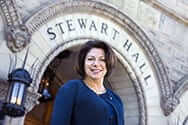 Born to Teach
Born to Teach
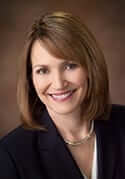 Tech-Savvy
Tech-Savvy On a Roll
On a Roll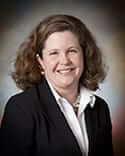 A Grafteful Immigrant
A Grafteful Immigrant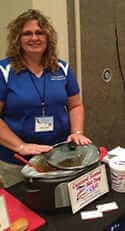 Hot Dog!
Hot Dog!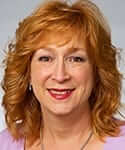 Helping Hand
Helping Hand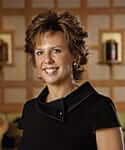 The Problem Solver
The Problem Solver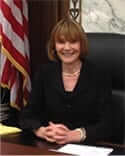 All Rise
All Rise World-Class Activist
World-Class Activist A WV Storyteller
A WV Storyteller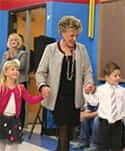 Teaching WV
Teaching WV Fair Lady
Fair Lady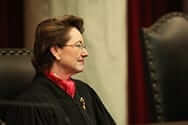 The Verdict is In
The Verdict is In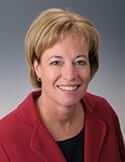 Stepping Up
Stepping Up Peace of Mind
Peace of Mind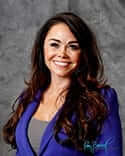 Energetic Ideas
Energetic Ideas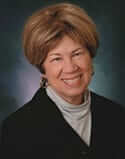 Arts, Advocacy, and Altruism
Arts, Advocacy, and Altruism Saving Cats and Dogs
Saving Cats and Dogs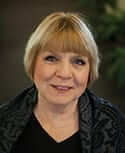 Break a Leg
Break a Leg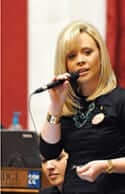 Miss Politics
Miss Politics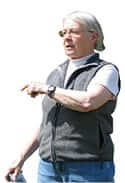 Water Warrior
Water Warrior On Kaull
On Kaull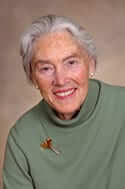 Preserving History
Preserving History Good Woman
Good Woman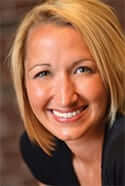 Better with Curry
Better with Curry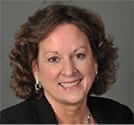 Food for Thought
Food for Thought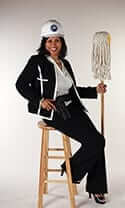 Action Oriented
Action Oriented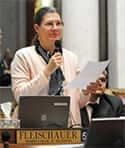 A Dedicated Delegate
A Dedicated Delegate Assuming Positive Intent
Assuming Positive Intent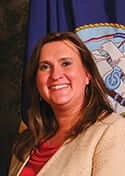 King Conquers All
King Conquers All Dream a Little Dream
Dream a Little Dream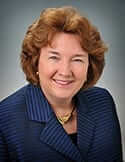 The Long Game
The Long Game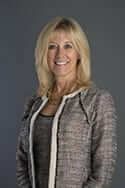 Taylor Made
Taylor Made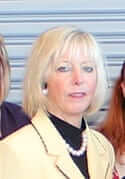 Pennies to Platinum
Pennies to Platinum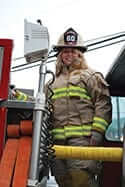 Living the Dream
Living the Dream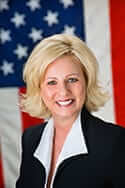 Raising the Stakes
Raising the Stakes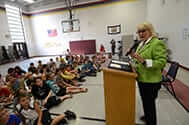 Ladies First
Ladies First All Hart
All Hart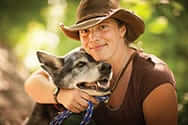 Irrepressible Activist
Irrepressible Activist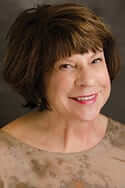 A Cap of Many Feathers
A Cap of Many Feathers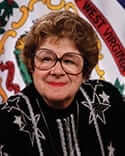 Champion of Culture
Champion of Culture Do the Salsa!
Do the Salsa!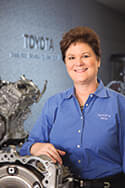 She Keeps Going
She Keeps Going Never Miss an Opportunity
Never Miss an Opportunity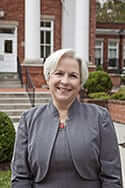 Art and Soul
Art and Soul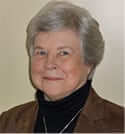 Standard of Excellence
Standard of Excellence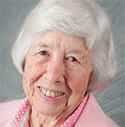 The Crusader
The Crusader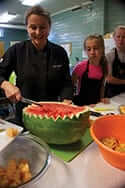 Food Hero
Food Hero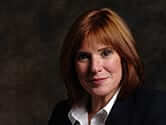 Help Yourself
Help Yourself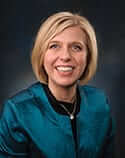 Commanding Presence
Commanding Presence







Leave a Reply